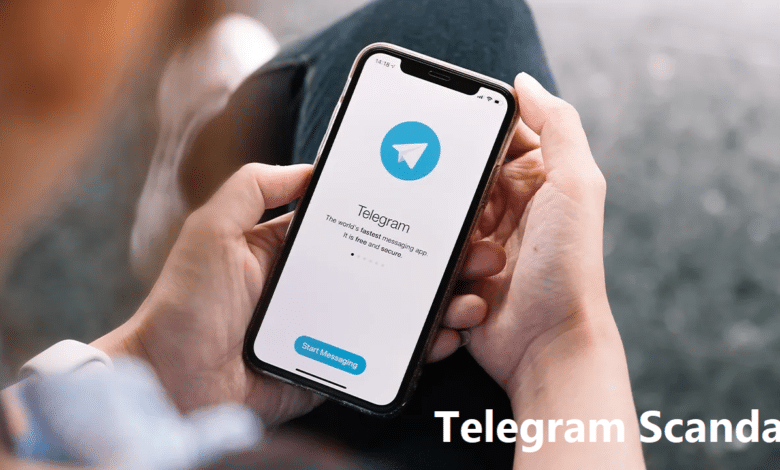The Real Secret of the Philippines’ Telegram Scandal 2024 Has Been Revealed in 2025

The “Telegram scandal 2024” in the Philippines has recently been one of the most talked-about topics. The event, which began as a seemingly insignificant leak, quickly escalated into a nationwide scandal that shook the very foundations of political and social structures in the country. In 2025, the truth behind the scandal was finally uncovered, leaving many questioning the integrity of key political figures, media outlets, and law enforcement agencies.
The Rise of the Telegram Scandal in 2024
The Telegram scandal of 2024 first surfaced when a series of encrypted messages from high-profile figures in the Philippine government were leaked to the public. The messages exchanged on the Telegram app contained sensitive information that raised eyebrows nationwide. These leaks were primarily related to corruption, political maneuvering, and power struggles between influential groups. As the scandal unfolded, it became clear that this wasn’t just about one or two rogue individuals but a deeply entrenched system operating under the radar for years.
The immediate reaction from the public was one of shock and disbelief. People were outraged that such sensitive communications, which were supposed to be secure, had been exposed for all to see. The political figures scrambled to deny the allegations, but the leaks continued to pour out, revealing more secrets and pushing the scandal further into the spotlight.
The Telegram scandal of 2024 quickly became a political firestorm. Various government agencies launched investigations, but the speed at which new information emerged made it difficult for authorities to keep up. Many people wondered if the scandal was a deliberate move by certain factions to weaken their political rivals or simply an accident that spiraled out of control.
Also Read: crypto batter
The Deep Layers of Deception Behind the Scandal
The initial leaks from the Telegram scandal were just the beginning. As more details emerged, it became clear that multiple layers of deception were at play. Some of the leaked messages hinted at backroom deals involving multi-billion-peso contracts, shady business deals, and even the manipulation of public opinion through fake news.
The key figures involved in the scandal were political leaders, business people, journalists, and law enforcement officers. This raised concerns about the extent to which corruption and deceit had infiltrated various sectors of society. The investigation revealed that these figures used encrypted platforms like Telegram to conduct covert operations, knowing their communications would be difficult to trace.
The deeper the investigation went, the more disturbing the findings became. The Telegram scandal was not just about corrupt politicians but the systemic abuse of power that had been allowed to fester unchecked for decades. The scandal exposed how powerful individuals used their positions to exploit the country’s resources for personal gain, all while manipulating the public through controlled media narratives.
How the Telegram Scandal Affected the Philippines’ Politics
The Philippines’ political landscape was forever changed by the Telegram scandal of 2024. As the scandal unfolded, public trust in the government began to erode rapidly. Politicians from all parties were implicated in the leaks, and citizens began to lose faith in their elected officials. The scandal sparked widespread protests and calls for transparency and accountability.
In response, the Philippine government announced a series of reforms to strengthen anti-corruption measures and promote greater transparency. However, many critics argued that these reforms were little more than a smokescreen to placate the public. Despite the efforts to address the scandal, the damage had already been done. Many people felt that the political system was broken beyond repair.
In addition to the political fallout, the scandal also significantly impacted the media. Journalists who had been reporting on the story were often targeted by powerful interests who sought to discredit them or silence their investigations. The media landscape became increasingly polarized, with different outlets offering conflicting narratives about the scandal. This led to a breakdown in the public’s ability to trust the news they were receiving, further deepening the divide within the country.
More Read: sushiro
The Involvement of Law Enforcement and the Media
One of the most shocking revelations from the Telegram scandal was the involvement of law enforcement and media figures. It was discovered that some law enforcement officers had been complicit in helping to cover up the scandal, providing protection to the individuals involved in the leaks. This raised serious questions about the integrity of the country’s justice system and whether law enforcement was genuinely working in the public’s best interests.
Equally troubling was the role played by certain media outlets. Instead of investigating the leaks and holding those responsible accountable, some news organizations were accused of downplaying the scandal or covering it up. These media organizations were accused of being too closely aligned with influential political figures, making it difficult to discern the truth from the narrative being pushed by those in power.
As the investigation into the Telegram scandal progressed, it became clear that the media and law enforcement were not just passive bystanders. They had been active participants in a system of corruption that spanned multiple sectors. The involvement of these institutions made the scandal all the more difficult to unravel, as they had the resources and influence to suppress evidence and protect those at the highest levels of power.
The Final Revelation: The Truth Behind the Telegram Scandal
In 2025, the investigation into the Telegram scandal finally reached its conclusion. The truth behind the scandal was even more shocking than anyone could have imagined. It was revealed that the leaks were part of a conspiracy involving powerful business tycoons, government officials, and media moguls. These figures had been orchestrating a series of events to consolidate their power and wealth, using the Telegram app as a secure means of communication to plan their actions.
The scandal’s true scope was far-reaching, affecting politics, the economy, the media, and the everyday lives of ordinary Filipinos. The final revelations confirmed that the scandal was not an isolated incident but part of a broader pattern of corruption and manipulation that had flourished unchecked for years.
The aftermath of the Telegram scandal in 2024 left the Philippines grappling with a sense of betrayal and distrust. The scandal exposed the extent to which influential individuals were willing to go to maintain their hold on power, and it served as a wake-up call for the nation. In the years to come, the Philippines would need to rebuild its political system from the ground up, but the damage caused by the scandal would not easily be forgotten.
Final Thoughts
The Telegram scandal of 2024 in the Philippines revealed the darkest corners of political corruption, media manipulation, and law enforcement complicity. While the full extent of the scandal only became clear in 2025, its impact has been profound, leaving the country forever changed. The Philippines now faces the difficult task of rebuilding public trust, strengthening its institutions, and ensuring such a scandal never happens again. As the country moves forward, the lessons learned from this scandal will serve as a reminder of the dangers of unchecked power and the importance of transparency in governance.
FAQ
What was the Telegram scandal in 2024 in the Philippines?
The Telegram scandal of 2024 involved the leak of encrypted messages between high-profile figures in the Philippine government. These messages contained sensitive information about corruption, backroom deals, and political maneuvering.
How did the Telegram scandal affect Philippine politics?
The scandal caused a massive loss of public trust in the government, leading to widespread protests and calls for political reform. It exposed the deep-rooted corruption within the political system and sparked debates on the need for greater transparency and accountability.
Who was involved in the Telegram scandal?
The scandal implicated many figures, including politicians, business people, journalists, and law enforcement officers. Many of these individuals were found to be complicit in a system of corruption and manipulation that spanned multiple sectors.
What is the impact of the Telegram scandal on the media?
The media played a crucial role in either exposing or downplaying the scandal. Some media outlets were accused of covering up the truth or presenting biased narratives, leading to a breakdown in public trust in the media.
What lessons can be learned from the Telegram scandal?
The scandal highlights the dangers of unchecked power and the need for greater transparency in politics and media. It serves as a reminder of the importance of holding those in power accountable and ensuring that corruption does not go unchallenged.




